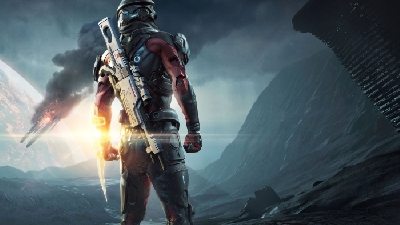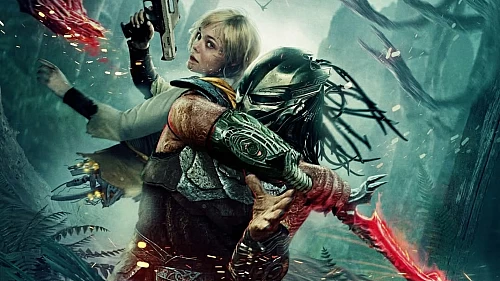BioWare's Mass Effect series has a storied history of love and romance, with character relationships driven by player agency being a key storytelling technique employed as far back as the original title.
It was an interesting, not to mention bold, approach by a studio primarily tasked with creating a sci-fi game series rather than a rom-com, but through using player-driven romances as the primary vehicle for character development, BioWare has been able to hone a mechanic that allows users to explore and experience a variety of themes: from gaining an understanding of the motivations and personality of other characters, to partaking in a number of LGBT relationships.
As a result of the feature's previous success, one question on many users' lips when Mass Effect: Andromeda released last week was: How would romances work in BioWare's first current-gen entry?
Prior to launch, BioWare was keen to emphasize that romance would be integrated legitimately and naturally within the narrative of Andromeda, rather than appearing to be a standalone feature that transparently existed in the place of conventional storytelling. In short, while romance would be a key narrative component, it wouldn't be the only method of character development.
Having already spent upwards of 20 hours with Mass Effect: Andromeda, we can largely confirm that this largely holds true: There no longer appears to be a noticeable gap with regards to the character development of non-romanceable NPCs and romanceable ones, leading to a much more fleshed out storyline overall.
As Scott Ryder, one of the first characters you'll meet onboard The Tempest is chief engineer Gil Brodie. Brodie is a potential romance option for Ryder, and one of the first opportunities you'll have to interact with the technical officer is when he invites you to join him for a game of poker.
In poker parlance, as described by 888poker's guide to poker psychology, Brodie is very much a Shark, looking for opportunities for Ryder to expose his game plan, before going in for the kill. As a result, the player will need to decide whether to call on AI companion SAM for some less-than-legitimate assistance in order to defeat Brodie. The outcome of the game - and your choice with regards to playing fairly or cheating - will ultimately determine how your romance with the engineer develops.
This time around, your potential companions and bedfellows are not limited to your crewmates. For example, peripheral figure and Asari journalist Keri T'Vessa constantly harangues either male or female Ryder for interviews as soon as they enter the Nexus space station. If you acquiesce to her requests, you'll have the option to punctuate your interviews with flirtation, eventually leading to a more meaningful relationship down the line.
It's not only the manner in which the protagonist can romance other characters that has changed up here, either. Rather than merely leading to either a meaningful courtship or casual encounter, Andromeda's relationships have more depth and a sense of genuineness. Rather than simply following a formula of option A leads to sex, option B leads to friendship, regardless of character, each of the title's NPCs has their own needs, motivations and intentions. Some will happily hop into bed with Ryder at the first time of asking; others will disapprove of his/her in-game actions and shun their approaches outright; some will be looking to settle down.
The net result of BioWare's changes is a richer and more true-to-life romance system, which still allows players to express different aspects of human sexuality and psychology as they wish, while also adding meaningful value to the game's overall story.

Pluribus Creator Intended to Riff Off Genre Headliners, But Perhaps Didn’t Expect This Connection
From the creator of Breaking Bad and Better Call Saul, expectations were notably high for the Apple TV+ release of Pluribus. The platform’s risi...

Watch 2 new Mercy (2026) movie clips ahead of the film's January 23rd release date!
Amazon's MGM Studios have just released 2 new movie clips from Mercy starring Chris Pratt and Rebecca Ferguson.

Stranger Things Season 5 Episode 7 suffers big drop in ratings ahead of the series finale!
Season 5 saw a sharp drop in ratings at the conclusion of Episode 7 – The Bridge, with many fans disappointed by drawn-out scenes and questionable writing.

Weta Workshop share King Kong concept art to commemorate film's 20th anniversary!
Take a look back at some awesome early artwork created for Peter Jackson's iconic King Kong movie!

Disney just signed a deal with OpenAI to let Sora curate videos using Star Wars, Marvel, Pixar & other Disney characters.
Disney have made headlines by partnering with OpenAI to let the platform have access to Disney properties and characters from Star Wars, Marvel, Pixar and more.




